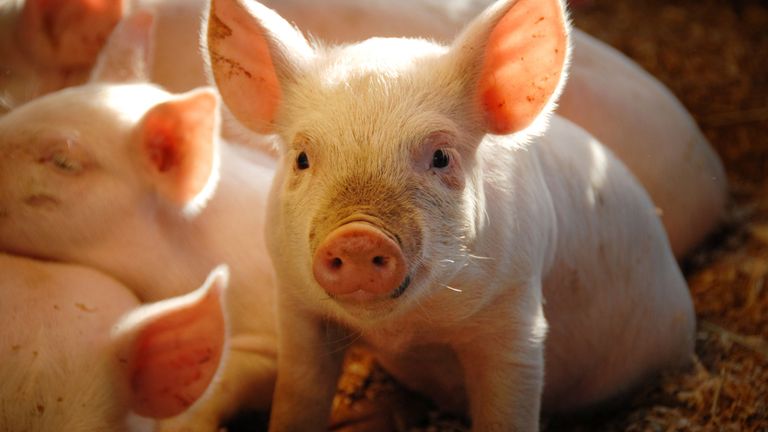
Scientists revive brain cells in dead pigs
The study challenges beliefs about brain damage and brain death.
Scientists in the United States have managed to revive brain cells in a group of dead pigs, challenging current scientific beliefs about the irreversibility of brain damage and raising questions about brain-based definitions of death.
The research was carried by a team of researchers from Yale University, and was published earlier this month in Nature.
The researchers acquired the heads of 32 pigs that had been killed for their meat. The brains were removed within a few hours of their death, and a experimental solution was pumped through the blood vessels of the organ. The solution brought oxygen to the brain tissue and contained chemicals that allowed the scientists to track its flow with ultrasound.
The researchers found that blood vessels in the pigs’ brains began functioning when exposed to the blood substitute and that certain brain cells regained metabolic activity, even responding to drugs. When the researchers tested slices of treated brain tissue, they discovered electrical activity in some neurons.
“This is a real advance,” said Andrea Beckel-Mitchener, a neuroscientist from the National Institutes of Health who was not involved in the study. “This has never been done before in a large intact mammalian brain.”
Yet research into revived brain tissue raises a series of unprecedented ethical issues. Among them are questions about animal brains regaining consciousness, and issues related to the welfare of laboratory animals.
“If ever there was an issue that merited big public deliberation on the ethics of science and medicine, this is one, ”said Jonathan Moreno, a bioethicist at the University of Pennsylvania.
Scientists are concerned that there are inadequate ethical protocols in place for research involving dead animals. “What do we need to do immediately, today, in order to ensure that there's adequate protections in place for animal research subjects?” asked Nita Farahany, a bioethicist and law professor from Duke University.
Scientists also speculated about what this research would mean for vital organ procurement if the technique were developed further and applied to humans. If people who are declared brain-dead could become candidates for attempts at brain resuscitation, “it could become harder for physicians or family members to be convinced that further medical intervention is futile”, said Case Western Reserve University bioethicists Stuart Younger and Insoo Hyun.
Scientists revive brain cells in dead pigs
Xavier Symons
Creative commons
https://www.bioedge.org/images/2008images/pig_brain.jpg
brain damage
brain death
futility
organ procurement
- Can machines be moral? - March 7, 2021
- Can we synthesise Christianity moral theology with secular bioethics? - November 28, 2020
- Euthanasia polling data may fail to capture people’s considered views - August 15, 2020
